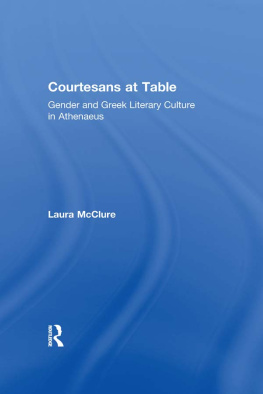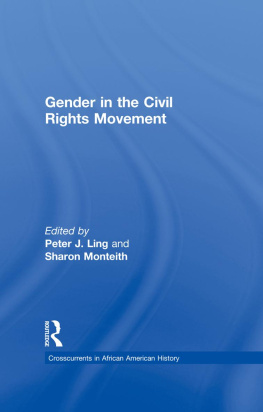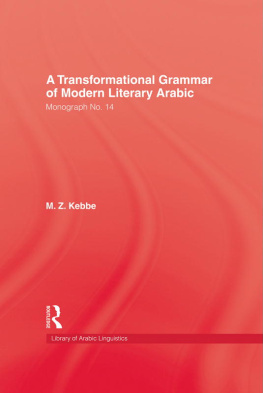Courtesans at Table
Courtesans at Table
Gender and Greek Literary Culture in Athenaeus
Laura K. McClure
First published 2003 by Taylor & Francis Books, Inc.
Published 2013 by Routledge
2 Park Square, Milton Park, Abingdon, Oxon OX14 4RN
711 Third Avenue, New York, NY 10017, USA
Routledge is an imprint of the Taylor & Francis Group, an informa business
Copyright 2003 by Taylor & Francis Books, Inc.
All rights reserved. No part of this book may be reprinted or reproduced or utilized in any form or by any electronic, mechanical or other means, now known or hereafter invented, including photocopying and recording or in any information storage or retrieval system, without permission in writing from the publishers.
Library of Congress Cataloging-in-Publication Data
McClure, Laura, 1959
Courtesans at table : gender & Greek literary culture in Athenaeus / Laura K. McClure.
p. cm.
Includes bibliographical references and index.
ISBN 978-0-415-93947-8 (pbk)
1. Athenaeus, of Naucratis. Deipnosophistae. 2. Athenaeus, of NaucratisCharactersWomen. 3. Women and literatureGreeceAthens. 4. Dinners and diningGreeceAthens. 5. Dinners and dining in literature. 6. Athens (Greece)In literature. 7. WomenGreeceAthens. 8. Prostitutes in literature. 9. Courtesans in literature. 10. Sex role in literature. I. Title.
PA3937.M26 2003
938.509082dc21
2003013105
For my parents
Contents
This book could not have been written without many conversations and many kinds of support, beginning with my home institution, the University of Wisconsin at Madison. Particular thanks are owed to the Graduate School of the College of Letters and Science for providing generous funding for this project at several critical junctures, and to the Institute for Research in the Humanities for a semester's leave. Colleagues in the Classics department deserve special mention for their support. I would especially like to acknowledge Patricia Rosenmeyer for her sustained collegiality and encouragement; her willingness to read most, if not all, of my work over the years has been a unique blessing. William Aylward and Nick Cahill endured with good grace, and considerable expertise, my pestering them with questions about material culture. Conversations with Susan Lape and Angela Pitts stimulated my thinking about representations of gender and Athenaeus' Hellenistic sources. I am grateful to Leslie Kurke for sharing her manuscript on Machon, and to Cathy Keesling for her essay on monuments of courtesans in Greek sanctuaries. Madeleine Henry and the other, anonymous referees for the press provided helpful suggestions on various drafts of the manuscript. Thanks also to Alex Pappas for her work in the trenches, checking references, and proofreading in the final stages of manuscript preparation.
Lastly, my deepest gratitude to my family for their forbearance, and especially to my husband, Richard Heinemann, for conversations about Walter Benjamin, literary theory, and the Konstanz Imperia, as well as for his gracious tolerance of my sustained inattention during the writing of this book.
Madison, Wisconsin
December, 2002
I have tended to use Latinized versions of Greek titles and names, particularly where they are well-established and familiar to readers. For less common titles and authors, as in the case of some of the comic plays, I have preserved a spelling closer to the Greek original. The result is not always consistent, and may at times seem arbitrary. I have avoided using a Greek font where possible; on a few occasions it has been necessary to include it to clarify a point. Instead, I have provided English translations, with important words or phrases included in a transliterated version in parentheses. Unless otherwise noted, all translations are my own. Names of authors, titles of texts, and major scholarly works are abbreviated in accordance with the list in The Oxford Classical Dictionary, 3d ed. (1996), pp. xxixliv. Abbreviations for the most frequently cited editions appear below.
| CAF | Koek, T. (ed.). 188088. Comicorum Atticorum Fragmenta. Vols. 13. Leipzig. |
| Choricius | Foerster, R. and E. Richtsteig (eds.). 1929. Choricii Gazaei opera. Leipzig. |
| FGrH | Jacoby, F. (ed.). 192358. Die Fragmente der griechischen Historiker. Berlin. |
| FHG | Mller, C. (ed.). 184170. Fragmenta Historicorum Graecorum. Vols. 14. Paris. |
| Gnom. | Sternbach, L. (ed.). 1963 Gnomologium Vaticanum e Codice Vaticano Graeco. Berlin. |
| Gow | Gow, A. (ed.). 1965. Machon: The Fragments. Cambridge. |
| Jensen | Jensen, C. (ed.). 1963. Hyperidis Orationes sex cum ceterarum fragmentis. Stuttgart. |
| KA | Kassel, R. and C. Austin, (eds.). 1983Poetae comici Graeci. Berlin. |
| Krte | Krte, A. (ed.). 195355. Menandri quae supersunt. Vols. 12. Leipzig. |
| LGPN 1 | Fraser, P. M. and E. Matthews (eds.). 1987. Lexicon of Greek Personal Names. Volume I. The Aegean Islands, Cyprus, Cyrenaica. Oxford. |
| LGPN 2 | Byrne, S. and M. Osborne (eds.). 1994. Lexicon of Greek Personal Names. Volume II. Attica. Oxford. |
| PLG | Bergk, T. (ed.). 1882. Poetae Lyrici Graeci. Leipzig. |
| PMG | Page, D. 1962. Poetae Melici Graeci. Oxford. |
| Preller | Preller, L. (ed.). 1964. Polemonis Periegetae Fragmenta. Amsterdam. |
| Sandbach | Sandbach, F. (ed.). 1991. Menandri Reliquiae Selectae. Oxford. |
| Spengel | Spengel, L. (ed.). 1856. Rhetores Graeci. 3 vols. Leipzig. [Repr. Frankfurt am Main: Minerva, 1966]. |
| Thalheim | Thalheim, T. (ed.). 1901. Lysiae Orationes. Leipzig. |
| TGF | Nauck, A. Tragicorum Graecorum Fragmenta. 2nd ed. Leipzig. |
| TrGF | Snell, B., R. Kannicht, and S. Radt (eds.). 1971Tragicorum Graecorum Fragmenta. Gttingen. |
| Wehrli | Wehrli, F. (ed.). 1974. Hermippos der Kallimacheer. Basel. |
A beautiful woman, yes, arrayed in a thousand splendors, Is a sumptuous table where many sup and take their fill
This book is concerned with the representation of courtesans, or hetaeras, in the Greek literary tradition, from the perspective of the late second century writer, Athenaeus. It is thus both a diachronic and a synchronic study of these figures and their deployment across genres and periods. Although the heyday of courtesans belonged to a specific literary and cultural matrix, classical Athens in the fourth century B.C.E., our fullest accounts paradoxically come from a much later period and context, fictional and scholarly works composed by Greek sophists living in the Roman Empire in the second century C.E. Lost are most of the fourth-century prosecution and defense speeches constructed around courtesans, little remains of the genres of Middle and New comedy, and none of the extant fragments fully illustrates the importance of this character type to the genre. Even more distressing has been the total loss of the Hellenistic and later prosopographies of Athenian courtesans that apparently chronicled their names and nicknames, their liaisons with famous men, and their witty quips. Still in circulation in the late second century C.E., these lost discourses nonetheless played a critical role in formulating the representations of courtesans among Second Sophistic authors such as Lucian, Alciphron, and Athenaeus.







